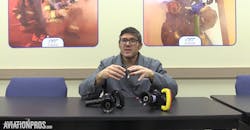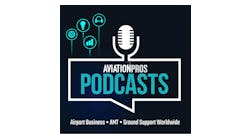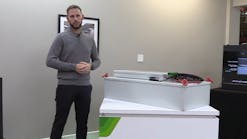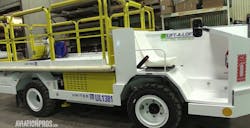It's almost midnight and Brad Brown, 30, is overseeing a crew of 10 mechanics giving an AirTran Airways Boeing 717 a thorough once-over known as an "A check."
Two mechanics at the rear of the 124-foot jet replace filters and do other routine engine chores. Another worker opens wing panels.
Some are inside the plane, while an inspector points out a chafed wing area that he wants buffed smooth.
In other parts of AirTran's flood-lit hangar at Atlanta's airport, mechanics work with quiet intensity on 21 jets that will have to be back in business before the sun rises.
The busy scene represents a new dawn of another sort for Brown and several of his compatriots. They are part of a group of about 75 AirTran employees who used to do similar work for archrival Delta Air Lines.
Since joining fast-growing AirTran a little over a year ago, three days after he was furloughed from Delta, Brown has been promoted to supervisor. He's also become a dad and started house-shopping - "something I can do when I have job security," he said.
Perhaps nothing more aptly symbolizes the two rivals' reversed fortunes of recent years. In the minds of many, AirTran is now the safe haven airline employer in town.
Indeed, it's one of the few economic bright spots lately on the Southside of Atlanta. At a news conference in June in the same Atlanta hangar, Gov. Sonny Perdue trumpeted the 7,700-employee airline's projected growth of about 500 jobs a year in the state through 2010.
Otherwise, the Atlanta airport's neighborhood is bracketed by disappointments, including the announced closings of the Ford assembly plant off the east end of the runways and Fort McPherson a few miles away. Delta, which filed for Chapter 11 protection last September, has cut almost 30,000 jobs since 2001, although its local headcount has remained more stable.
The pay gap between Delta and AirTran employees has also shrunk and in some cases been reversed - at least for similarly experienced employees - after Delta cut most employees' pay twice since 2004.
Delta told arbitrators weighing pilot pay cuts earlier this year that its pay scale for many employees was already lower than pay for similarly experienced employees at AirTran and other carriers. Senior airport agents and mechanics is now lower than AirTran's, Delta said, while its senior reservation agents only make about $2,000 more a year.
After Delta pilots agreed to a 14 percent pay cut in April - their second since 2004 - AirTran pilots now make about the same money as Delta pilots flying similar-sized jets.
According to Air Inc., a pilot career service based in Atlanta, Delta's pilot pay ranges from about $43,000 a year for new hires to $167,000 for senior captains flying the biggest jets. AirTran's pilots make $35,500 to $147,000 a year.
Delta spokeswoman Gina Laughlin noted that many Delta pilots are still better-paid than those at AirTran because they fly bigger jets, while AirTran flies only two relatively small types of jets, 717s and 737s. She also said there are still "hundreds" of job openings at Delta for airport or reservations agents and even some mechanics.
"Delta continues to offer excellent career opportunities for current and potential employees, particularly in Atlanta as we grow our network footprint and rebuild our company," she said.
On average, AirTran's non-pilot employees still tend to be lower-paid than Delta's because the growing airline hired them more recently.
Ken Miller, an AirTran mechanic who was furloughed from Delta in 2004, said his hourly pay dropped about $6 since he lost his nearly $60,000-a-year job at Delta. But Miller said most friends at Delta have since lost their jobs or departed, and he figures those left are paid about the same as he is.
It wasn't supposed to turn out this way, added Miller.
When he was hired in early 2001 to work in Delta's huge maintenance division, known as the Technical Operations Center, a manager told him, " 'This is the last job you'll ever have to look for,' " recalled Miller. "Five months later, September 11th happened." Delta was already losing financial altitude by then, and the terrorist attacks turned an industry downturn into a tailspin.
Miller worked almost 18 months under the layoff threat. "I was actually relieved" when it happened, he said.
He got a job at Lockheed Martin's military aircraft plant in Marietta, Ga. but "didn't feel safe there, either," he said. He later hired on with AirTran.
The slender 33-year-old wears shorts and a short-sleeve work shirt bearing a patch from the AirTran mechanics' union, the Teamsters.
Delta's mechanics aren't unionized. But Miller said the work atmosphere isn't very different. There is "more pressure" at AirTran because the aircraft need to be ready to fly again next morning, he said, "but that isn't going to alter my decision-making at all" about whether a jet is airworthy.
The biggest difference at AirTran, he added, is he feels "a lot more secure." But he said he doesn't ever want to hear that this is the last job he'll need.
"I guess maybe I would think a company is overconfident," he said. "I don't take things for granted as much now as far as a job."
Brown, a compact man who still has the bearing of an Air Force crew chief, said he decided to finish his bachelor's degree in aeronautics when he got his first warning from Delta in 2004 that he might be laid off.
Brown and his wife also had been putting off having a child, but eventually concluded that was one thing - job or no job - they couldn't delay.
The news that he was losing his job and becoming a father arrived about the same time in early 2005.
"I was very scared," said Brown. Some friends at AirTran suggested he apply there. "I thought it was a great idea. I applied as soon as I could." By then, he had completed his bachelor's degree at Embry-Riddle Aeronautical University's satellite campus near the airport. He began working on a master's degree.
When he was furloughed by Delta in May 2005, his wife was three months pregnant with their son, Kaden, now 8 months old, but he also had a job waiting at AirTran. He likes working at the smaller company.
"I knew everybody's name in a month. It took me two years to know everyone in my department at Delta," he said.
Copyright 2005 LexisNexis, a division of Reed Elsevier Inc. All rights reserved.
Terms and Conditions | Privacy Policy
News stories provided by third parties are not edited by "Site Publication" staff. For suggestions and comments, please click the Contact link at the bottom of this page.





